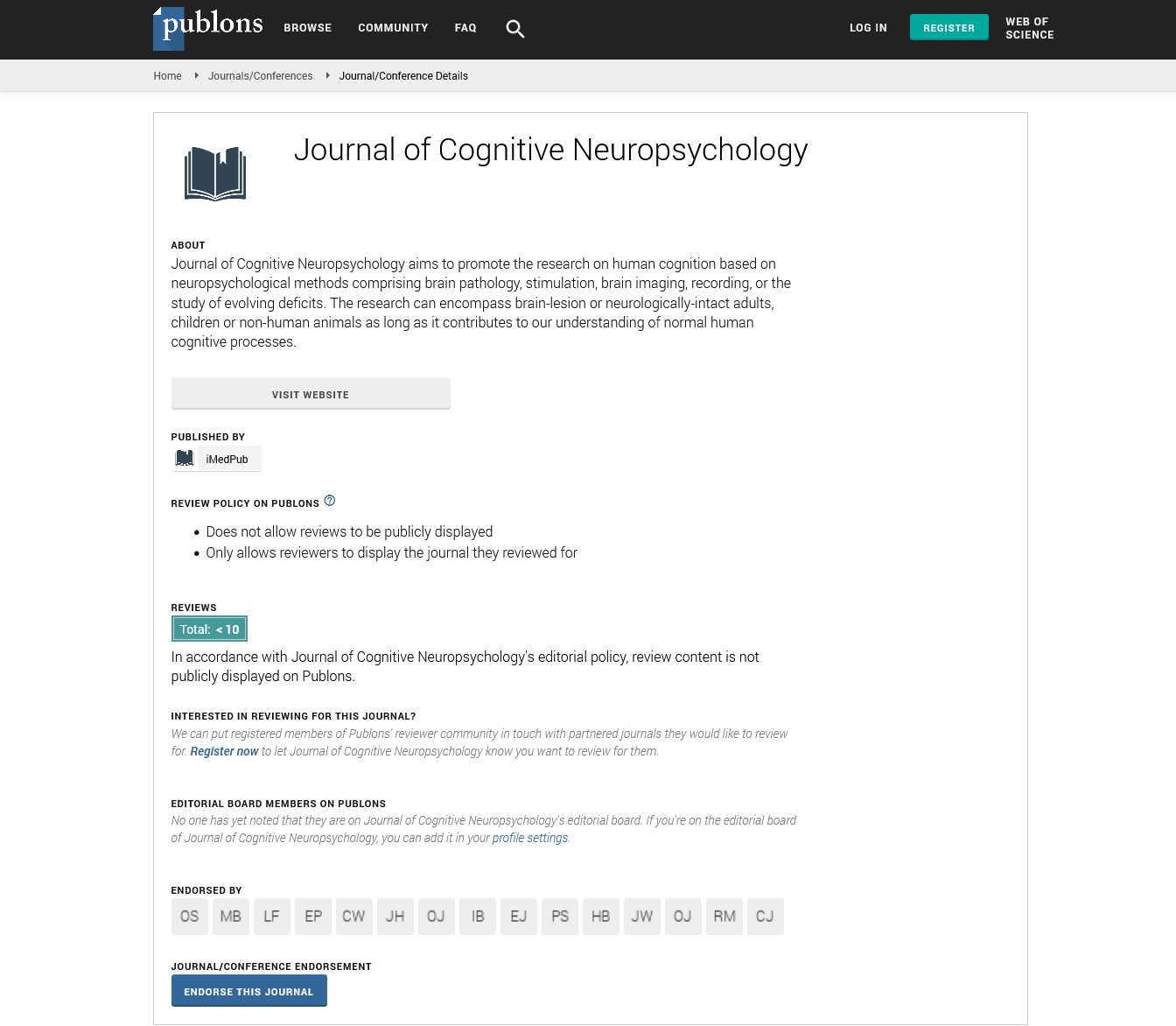Effect of lead acetate on animal behavior: pharmacological study behavioral in the wistar rat
World Congress on Neurorehabilitation
July 05-06 2021 | Webinar
Jihane Chaibat
Faculty of sciences ibn tofail kenitra, Morocco
ScientificTracks Abstracts: J Cog Neu
Abstract
The main objective of this work is to study the effect of lead acetate on behavior of anxiety and epression in male and female Wistar rats. The experimental study is carried out on young rats of a number of 40, the animals are divided into 4 batches experimental, control batch and 3 batches exposed to successive doses of 0.25 mg / kg, 0.5 mg / kg and 1mg / kg of lead acetate. The metal is administered daily at 4:00 p.m. by injection under cutaneous and for a period of 8 weeks. At the end of the various treatments, the animals were subjected to the open field test (OFT), the raised cross maze test (EPM) for determine the level of anxiety and the forced swimming test to elucidate the level of depression. The results obtained showed that anxiety and depression behaviors are clearly expressed in rats poisoned by lead acetate, suggesting that this metal induces anxiogenic and depressive effects. In addition, the acuteness of depression and anxiety is accentuated, however, as the concentration of lead increases, which reveals the effect of dependent. Our results confirm that lead causes side effects behavioral issues such as anxiety and depression.
Google Scholar citation report
Citations : 8
Journal of Cognitive Neuropsychology received 8 citations as per Google Scholar report
Journal of Cognitive Neuropsychology peer review process verified at publons
Abstracted/Indexed in
- Google Scholar
- Publons
- MIAR
Open Access Journals
- Aquaculture & Veterinary Science
- Chemistry & Chemical Sciences
- Clinical Sciences
- Engineering
- General Science
- Genetics & Molecular Biology
- Health Care & Nursing
- Immunology & Microbiology
- Materials Science
- Mathematics & Physics
- Medical Sciences
- Neurology & Psychiatry
- Oncology & Cancer Science
- Pharmaceutical Sciences
